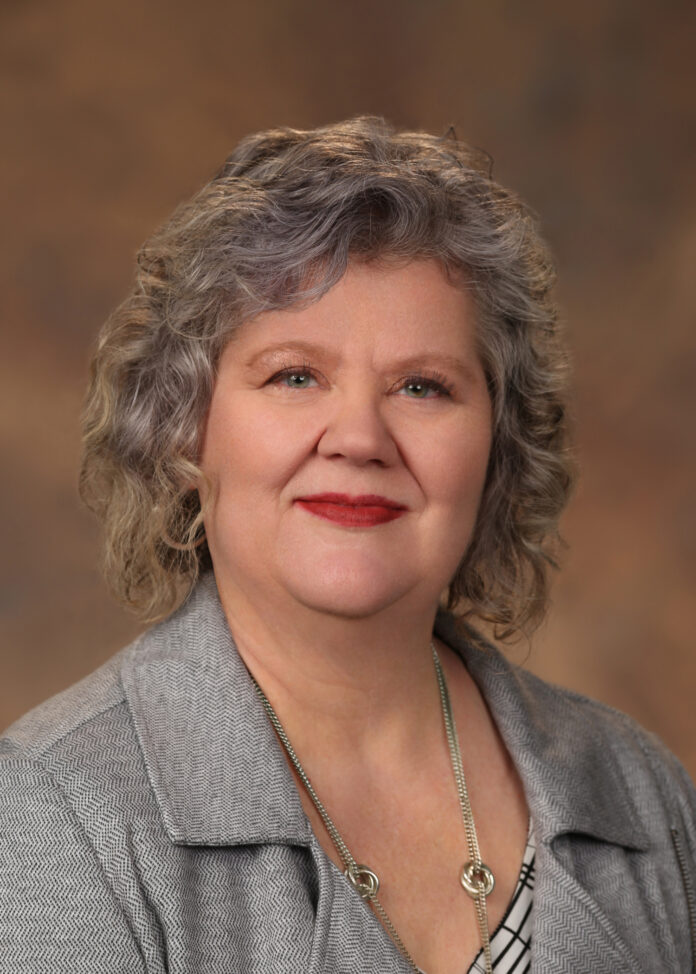
By Carol A. Cates, MSN, MBA, RN
Chief Nursing Officer
Odessa Regional Medical Center
Last week I wrote about why it’s so important to talk to your loved ones and your primary health care provider about end-of-life decisions. I deliberately ended that article talking about another thing it’s very important to talk to your family about: organ and tissue donation.
This week, I am going to continue with that topic.
Organ and tissue donation is a subject very near and dear to my heart. Professionally, I have seen so many lives impacted for the better after working with several heart transplant programs over the years. A nurse I worked with several years ago, her infant daughter received a liver from a generous donor, she is now a happy and healthy “tween.” Without that liver, she wouldn’t have survived her first year of life.
My husband and my dad have both had their sight saved by corneal transplants, and in 2000, I received a graft of donated bone after a serious neck injury. I would not be able to do most of the things I do now without the generosity of a donor. There are few more generous gifts than anyone can give than the gift of life to another.
The statistics on organ and tissue donation are astonishing, and really show how much one person can impact others, and how huge the need for donors is.
Here in Odessa, we work with two different organizations for organ and tissue donation, Southwest Transplant Alliance and the Western Texas Lions Eye Bank Alliance. Those two organizations work very closely together because of the impact that one organ and tissue donor can have on so many things.
One of the statistics that always amazes me is that one person can save up to 8 lives and improve the quality of life for 75 others. It’s such an incredible impact with that one decision.
For organ and tissue donation we work with Southwest Transplant Alliance (STA). In 2020, 401 people in Texas donated their organs through STA. They recovered 1,302 organs from those generous donors. 713 people were able to donate tissues through STA. Between the organ and tissue donors, more than 37,000 lives in Texas were positively impacted. Western Texas Lions Eye Bank Alliance collects corneas from generous donors. In 2016, 50,000 Americans received corneal transplants that restored their sight.
Unfortunately, with rare exception, organ and tissue donation is an end-of-life decision. We can now take parts of livers, one kidney, bone marrow, stem cells, blood and blood products from living donors, but everything else has to be donated by someone who has died. For most organs the criteria are even more narrow because the person has to be brain dead, but their heart and other organs still have to be functional with the help of life support devices. That means that only 3 out of every 1000 deaths occur in a manner where organs can be donated. That is not even close to the demand for transplanted organs.
In Texas alone, more than 10,000 people are waiting for a donated organ. 100,000 people in the US need organ transplants. Every 9 minutes someone gets added to that list. Because the demand is so much higher than the supply, 17 people die every day waiting for a transplanted organ.
There are many myths associated with organ and tissue donation. I wanted to debunk a few of them. Race, social status, and fame never play a factor in the allocation of donated tissues or organs. Anyone can register to donate, regardless of their health status or age. Registering as a donor has absolutely no effect on how you are cared for by medical personnel. Most major U.S. religions support donation. Donors can have an open casket funeral if they want. There are no costs associated with donation.
Because so few people can donate because of the circumstances of their death, it’s very important that everyone register as a donor. You can do that online through organ.org/register, you can say “yes” to organ donation when you renew your drivers license, or you can record your decision on a smart phone health ap. Make sure your family knows that you want to donate and why. It might inspire them to donate as well. I cannot say how much I hope you register to donate. I registered years ago. I hope that when my time comes, I am eligible to give someone else a chance. After all, its not like I’ll need that stuff after I’m gone.
In closing, I want to thank our local STA and Lions Eye Bank representatives. You do an incredible job in supporting people during a very difficult time and through what can be difficult decisions if a person has not spoken to their family about donation. You make sure the process of donation runs smoothly so every possible organ and tissue that people donate is put to good use. I also appreciate all the information you gave me to write this article. Thank you so much.



